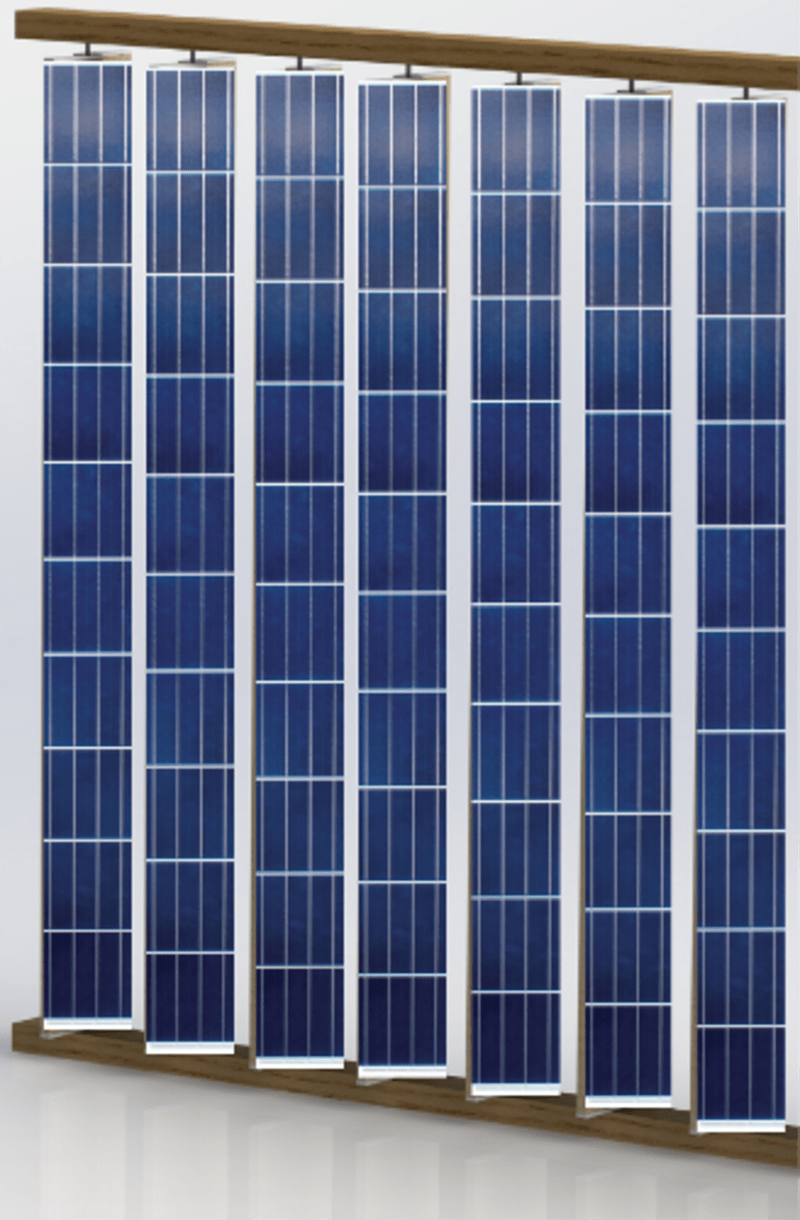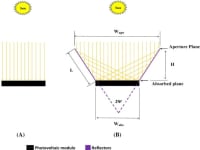Solar trackers have been used for decades. Trackers aim solar panels to continuously face the sun to maximize the energy captured. Concentrated photovoltaics (CPV), like conventional photovoltaic systems, generate electricity from sunlight. Compared to conventional photovoltaic systems, CPV are more efficient. CPV has reached over 40% in the lab and over 30% in real-world systems. In contrast, conventional PVs produce electricity at only about 20% conversion rates. Despite the superior efficiency, CPV systems are not the dominant technology choice because they have required expensive tracking and cooling.
ConcenTracker solves the problems of tracking with a novel design that can even be mounted on roofs. This new design overcomes the two difficulties of previous concentrated solar.
First, instead of a large solar panel that requires expensive tracking and cooling, this design uses small “slats”. A useful metaphor is a “Venetian blind” in which all slats rotate as a group. Each slat has multiple CPV chips on the top, each with a magnifying lens. The bottom surface of the slat has heat radiators to passively shed excess heat. The result is that this light-weight tracker is a natural fit for CPV cells. Second, the small size of the integrated tracker allows it to be used in all locations.
Using CPV technology has several advantages:
• Less solar cell material is required to capture the same or even more amount of radiation as a non-concentrating energy system
• The entire system can be cost effective due to fewer cell material, low cost optics and increased output
Like this entry?
-
About the Entrant
- Name:Robert Devine
- Type of entry:individual
- Patent status:none





